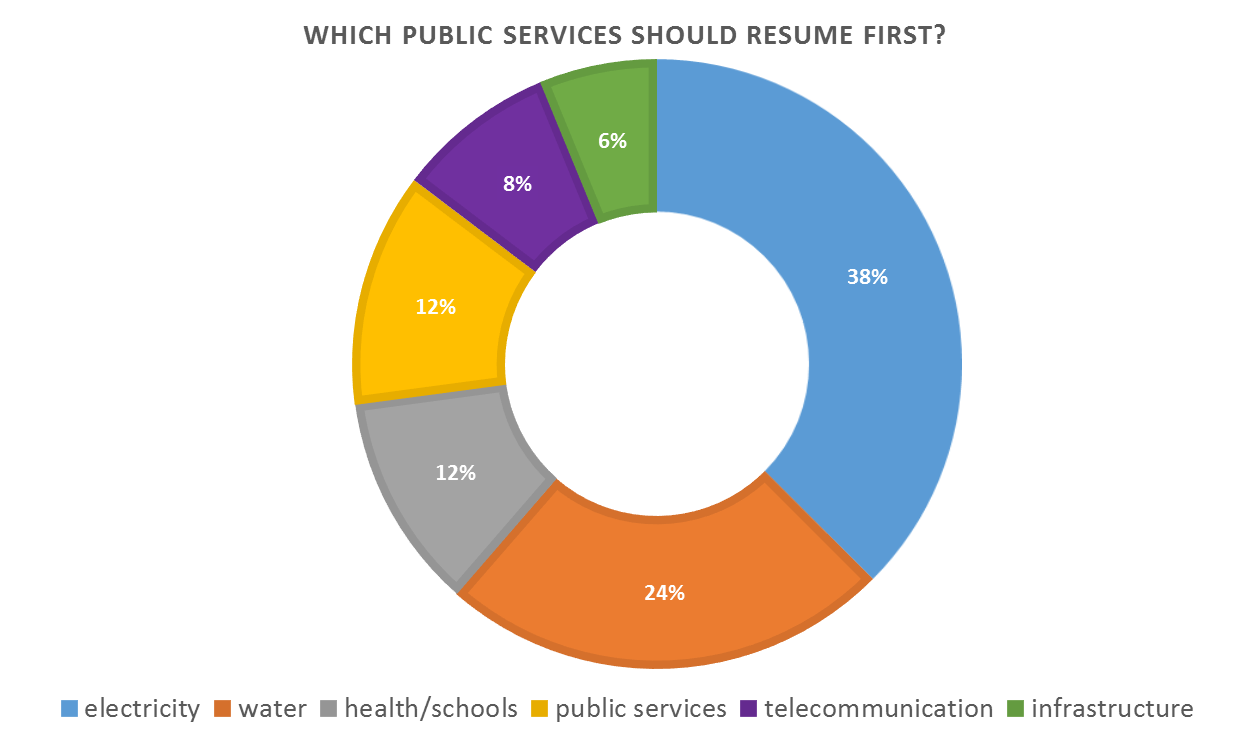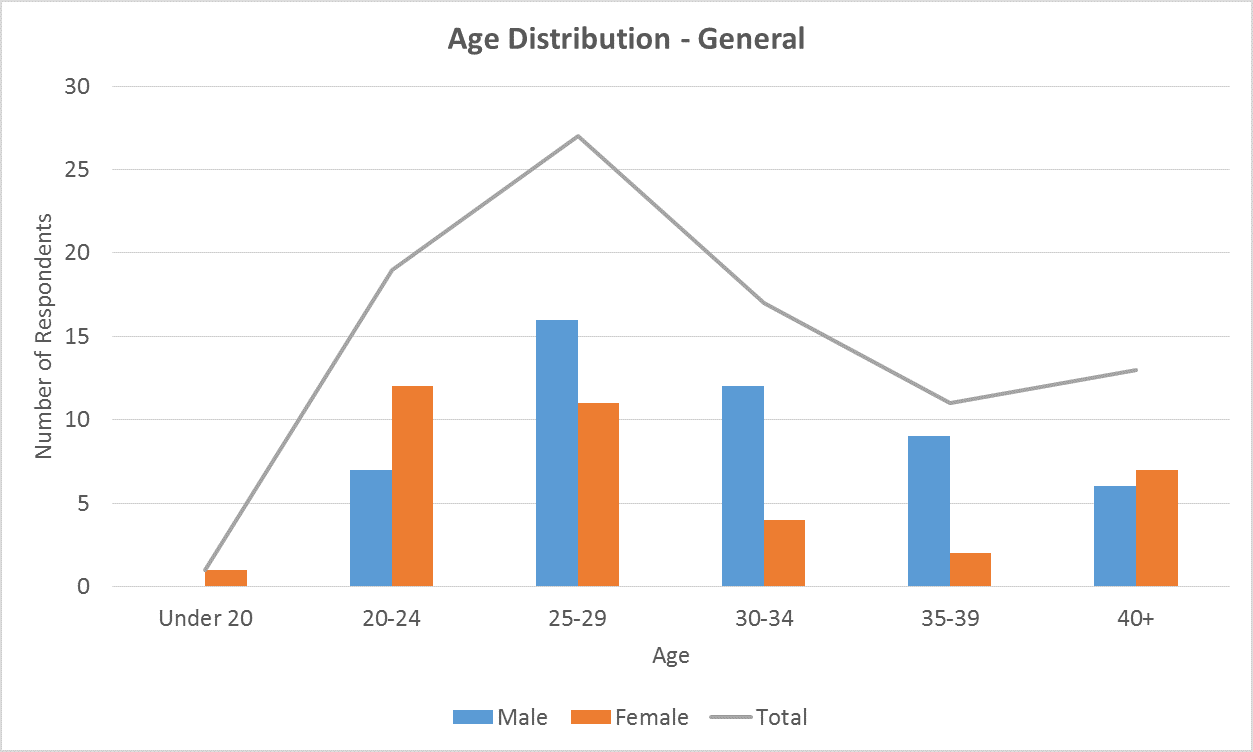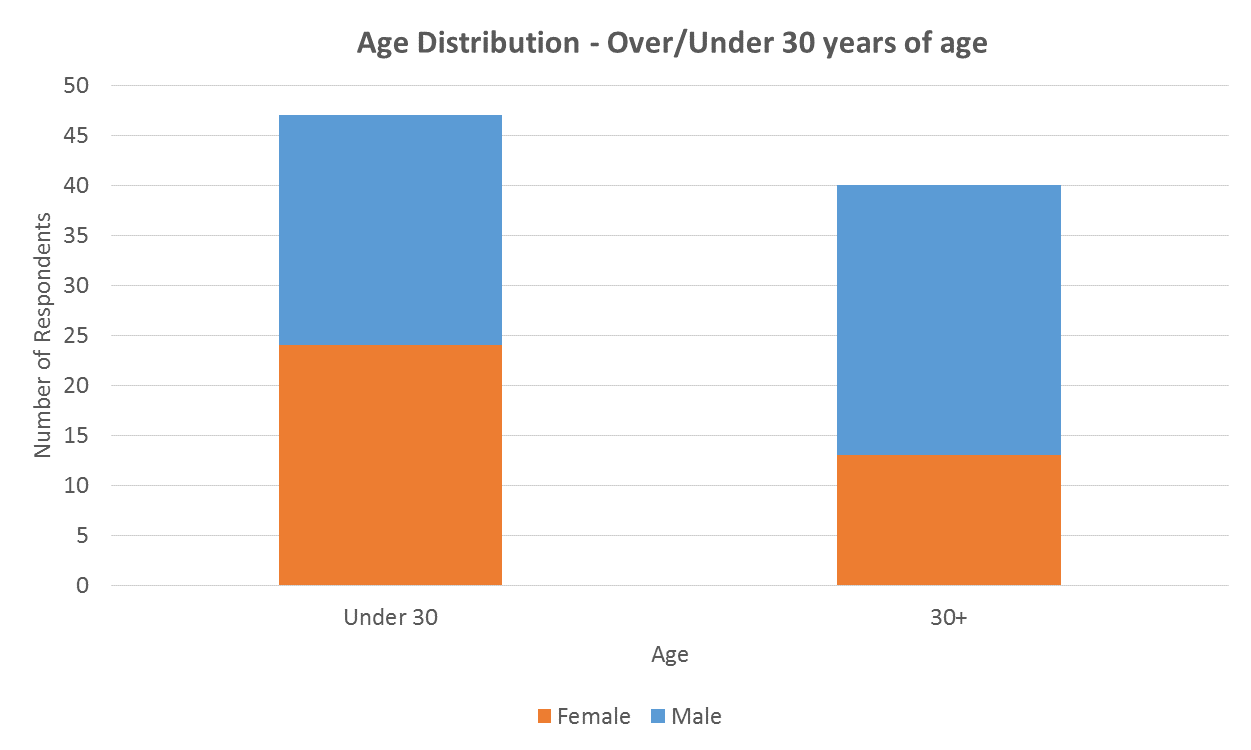We know that many Syrians who have been forced from their homes are passionate about their country and are already playing a role in its future. When refugees and people who were forced to leave eventually return home, they often suffer a second displacement when they are pushed aside by reconstruction processes that ignore their needs and plans. By gathering information from as wide a range of people as possible, we hope to challenge many of the assumptions about how reconstruction should be managed.
Over the next several months, we will post data snapshots highlighting different visions for Aleppo’s future. Our first snapshot is about restoring public services to rebel-held areas of the city.
Gathering data from refugees or from cities in the midst of conflict is difficult. These difficulties are amplified in Syria because people have lived in a very controlled and closed society for decades. In late 2014 and early 2015 we surveyed 1001 people, including 408 online surveys, 499 paper questionnaires from Aleppians in five Turkish cities, and 94 interviews in rebel-held Aleppo. Our overall sample skews towards more affluent, university-educated, younger male respondents with internet access. Each survey method has its problems and there is no doubt we have some sampling problems.
From December 14, 2014 to January 7, 2015 the Aleppo Project interviewed 94 men and women mostly in rebel-held Aleppo (a few were normally resident in rebel-held Aleppo but interviewed in Turkey) about their vision for the city. One of our questions was, “which public services should resume first?”
As you can see from the graph above, about 60 per cent want electricity or water restored to rebel-held Aleppo first. Another 20 per cent want public services, including security and a judiciary system or healthcare and schools restored first. The rest want telecommunication or other infrastructure restored first. We were not surprised by these results given that rebel-held Aleppo has had limited or intermittent access to these services since the conflict started.
Since we asked respondents open-ended questions about which services should resume first, many answered with more than one. For example, about 36 per cent of women (14 of 39) and 27 per cent of men (14 of 51) specifically said they wanted electricity AND water restored first.
Note that to capture the range of opinions, we weighted each individual’s response(s) and grouped them by category. For example, we combined schools and hospitals into one category, put sewage, roads and the airport in infrastructure, added the thermal station to electricity, and included security, civil defense, and a judicial system in the broader category of public services.
GENDER DIMENSION
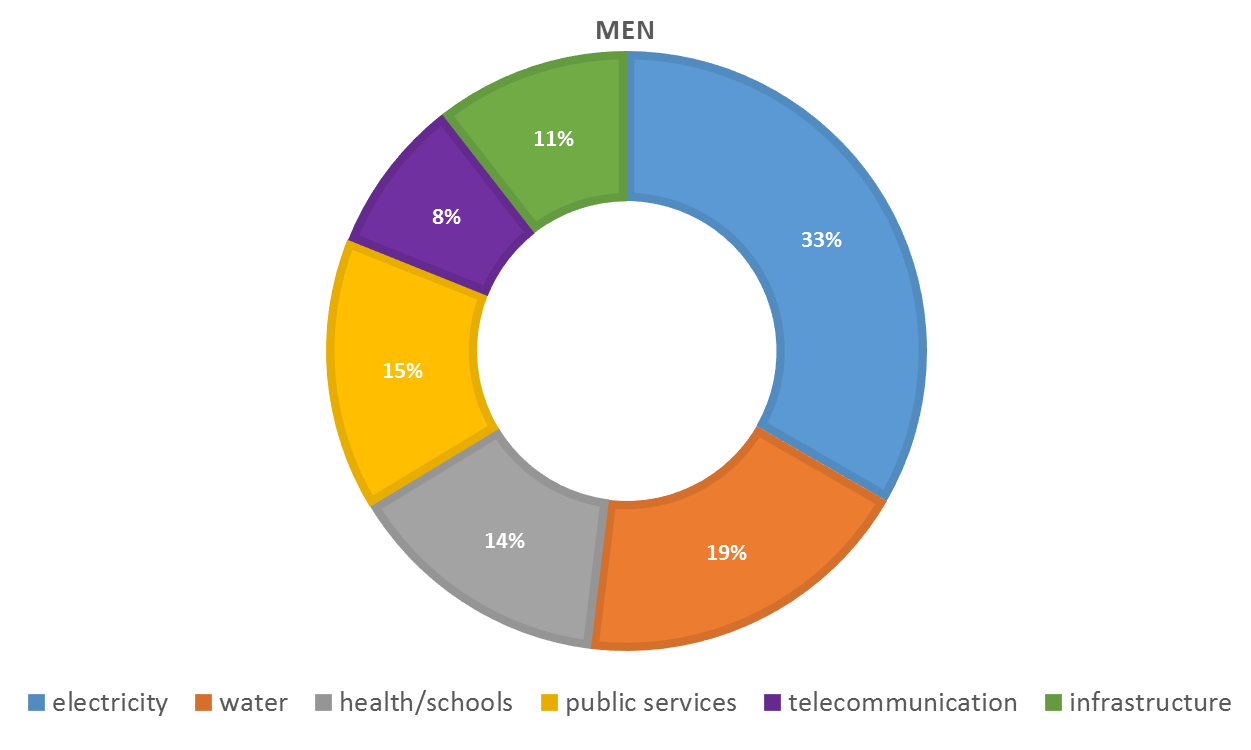
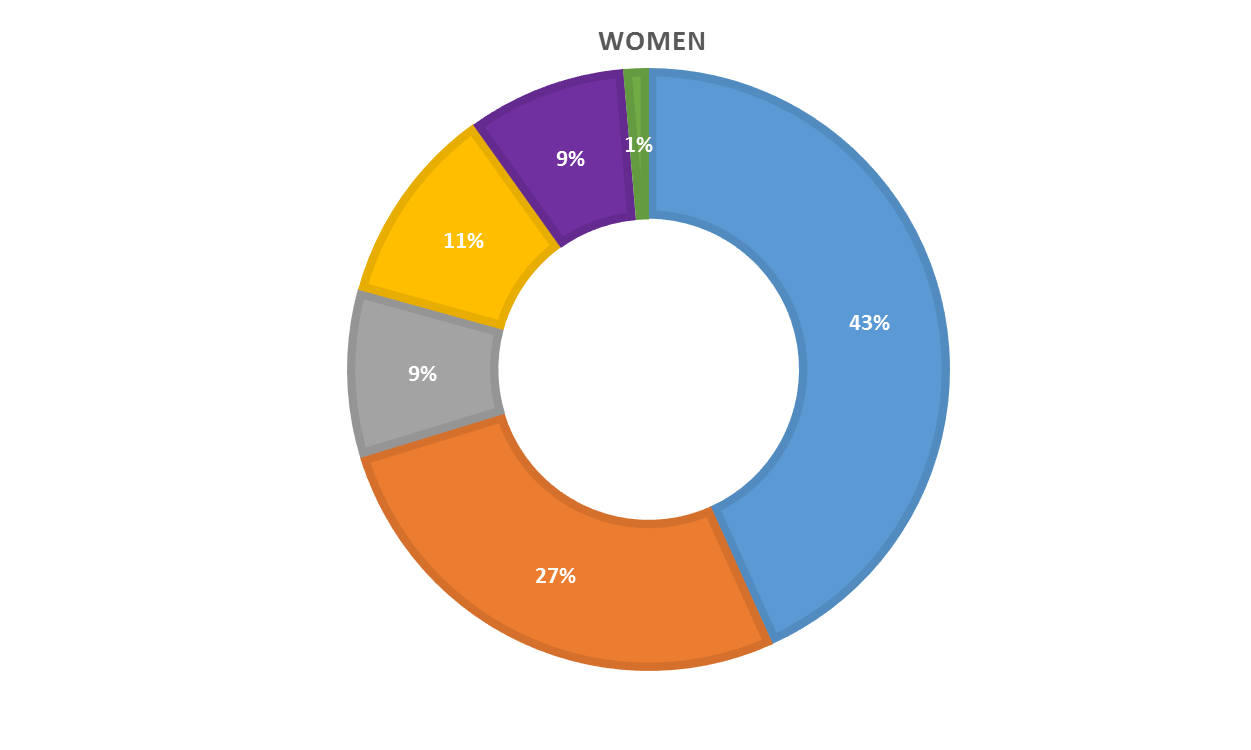 As expected, we found differences in which services men and women want restored first. Although 52 per cent of men want electricity or water restored first, 70 per cent of women do. We speculate this is because women are responsible for daily tasks including cooking and washing that require electricity and water. We were not surprised that men were more interested in restoring infrastructure by a significant margin than women (see above) because humanitarian assessments show that as the conflict has spread, women’s ‘space’ has tended to shrink to their homes and immediate neighborhoods. On the other hand, given reports of women’s increased role in rebel-held Aleppo as teachers and providers of medical supplies, we were surprised that a higher percentage of men than women want schools and hospitals restored first.
As expected, we found differences in which services men and women want restored first. Although 52 per cent of men want electricity or water restored first, 70 per cent of women do. We speculate this is because women are responsible for daily tasks including cooking and washing that require electricity and water. We were not surprised that men were more interested in restoring infrastructure by a significant margin than women (see above) because humanitarian assessments show that as the conflict has spread, women’s ‘space’ has tended to shrink to their homes and immediate neighborhoods. On the other hand, given reports of women’s increased role in rebel-held Aleppo as teachers and providers of medical supplies, we were surprised that a higher percentage of men than women want schools and hospitals restored first.
AGE DIMENSION
Our interview sample of 94 included 51 men, 39 women, and four people who did not provide their gender. Six individuals did not provide their age. As you can see above, we interviewed a few more women under 24 years of age and 40 years of age or older than men and significantly more men than women in their mid-20s and 30s. Importantly, we only interviewed four males and no women 50 years of age or older and three men and six women between the ages of 40 and 49. This means that one should take particular care interpreting data based on age for those under 20 or over 39 years of age.
Especially given the age-related issues mentioned above, we needed another tool to analyze data based on age. By breaking the group into over and under 30 years of age, we created two groups of similar size—47 people under 30 years of age and 41 people 30 years of age or older. Of more interest, because our under 30 years of age group contains 23 men and 24 women, their views are equally represented in this age group. The same does not hold true for the 30 years of age and older group, which skews very heavily towards men in their 30s.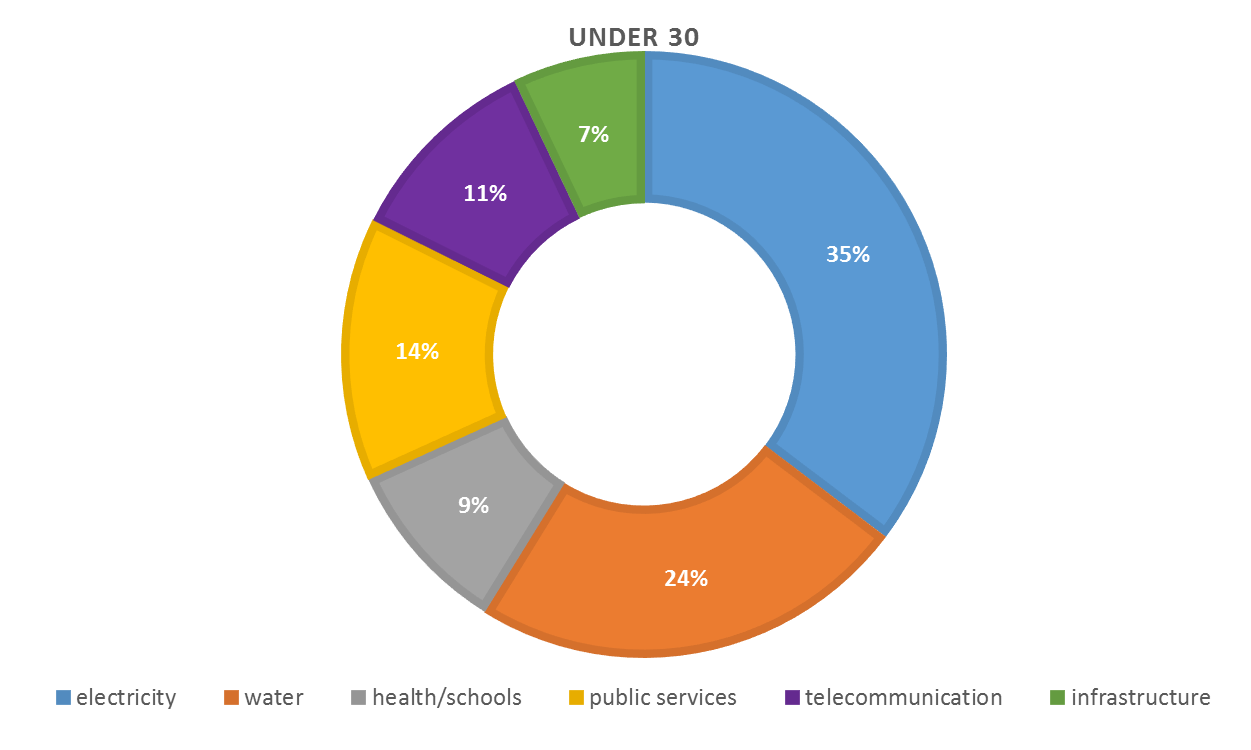
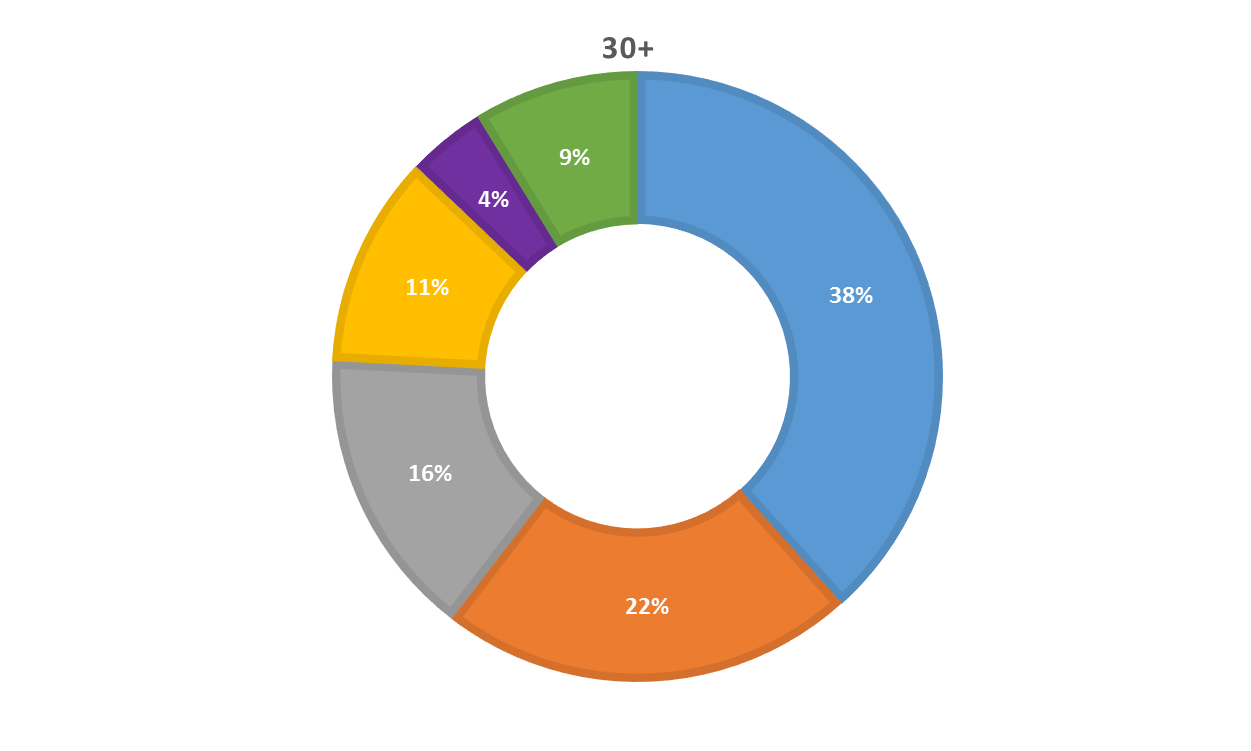 With two notable exceptions, there was a weak correlation between age and which services should be restored first. We were not surprised that 11 per cent of those under 30 years of age want internet connections first as opposed to 4 per cent of those 30 years of age and older. According to a recent report on social media usage in Aleppo, internet use decreased with age. It was, however, interesting that only 9 per cent of younger respondents as opposed to 16 per cent of older respondents want schools or hospitals restored first. We speculate that younger respondents may be less concerned about schools and hospitals because a) they have finished school and do not yet have school-aged children and b) they may have lower instances than older adults of medical conditions such as diabetes or hypertension that would require routine medical care or medication.
With two notable exceptions, there was a weak correlation between age and which services should be restored first. We were not surprised that 11 per cent of those under 30 years of age want internet connections first as opposed to 4 per cent of those 30 years of age and older. According to a recent report on social media usage in Aleppo, internet use decreased with age. It was, however, interesting that only 9 per cent of younger respondents as opposed to 16 per cent of older respondents want schools or hospitals restored first. We speculate that younger respondents may be less concerned about schools and hospitals because a) they have finished school and do not yet have school-aged children and b) they may have lower instances than older adults of medical conditions such as diabetes or hypertension that would require routine medical care or medication.
Over the next few months, we’ll continue to provide data snapshots from our surveys. Comments, questions? We’d love to hear from you.
 The Aleppo Project
The Aleppo Project